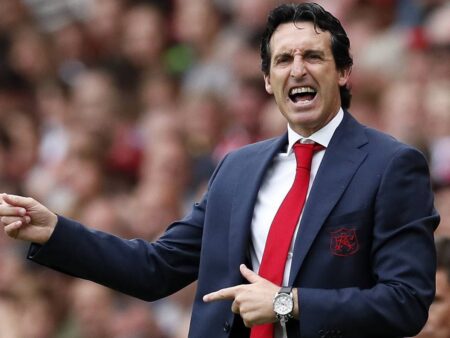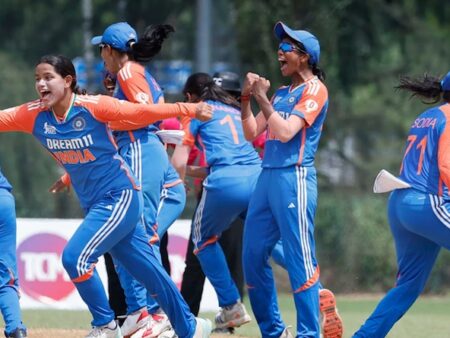
Every year, as the football season marches on, a subtle buzz begins to permeate the global conversation. It starts as whispers, then escalates into full-blown debates across sports desks and fan forums: “Who deserves the Ballon d`Or?” This prestigious award, symbolizing the pinnacle of individual achievement in football, invariably ignites passionate arguments, revealing the fascinating paradox at the heart of the sport: celebrating individual brilliance within the ultimate team endeavor.
The Annual Reckoning: More Art Than Science
The Ballon d`Or nominations, when finally revealed, are less a definitive list of the objectively “best” and more a curated selection designed to spark discussion. It`s a reflection of stellar performances, yes, but also of narratives, momentum, and the collective memory of a season. The criteria are ostensibly clear—individual and collective performance, player class, and overall career impression—yet their interpretation remains stubbornly subjective. A panel of esteemed journalists, charged with the unenviable task of distillation, ultimately renders a verdict that is frequently, delightfully, and sometimes infuriatingly, contested.
One might assume that in the age of advanced analytics and performance metrics, determining the finest player would be a straightforward exercise in data tabulation. However, football stubbornly resists such sterile quantification. A crucial assist in a cup final, a game-saving tackle, or a moment of individual magic that unlocks a resilient defense often defies simple statistical weighting, pushing the assessment into the realm of interpretation rather than mere computation.
The Great Divide: Statistics Versus Silverware
At the core of the annual Ballon d`Or debate lies a fundamental philosophical split: should the award honor raw, statistical output, or should it primarily reward those who lifted the most significant silverware? It’s the perennial tug-of-war between the dazzling individual performer on a moderately successful team and the instrumental cog in a trophy-laden machine.
- The Statistical Purists: This camp champions the players who consistently deliver eye-popping numbers: the prolific goal-scorers who shatter league records, the playmakers whose assist tallies rival entire teams, or the goalkeepers with an improbable number of clean sheets. For them, undeniable individual excellence, irrespective of collective triumph, represents true supremacy. After all, if a player scores 50 goals but his team finishes second, is his individual brilliance diminished by a single point in the league table?
- The Trophy Collectors: Conversely, many argue that football is, first and foremost, about winning. From this perspective, the true measure of a player’s impact lies in their contribution to collective success. The player who leads their club to a historic league title or orchestrates a Champions League triumph, even if their individual statistics are not chart-topping, embodies the essence of elite performance. They were crucial when it truly mattered, often in the cauldron of high-stakes competition.
The ironic truth is that both perspectives hold considerable merit, creating a delicious dilemma. A player might dominate individually but fall short of a major trophy, leaving pundits to ponder: was their brilliance wasted, or merely unrewarded by circumstances? Conversely, a player with modest statistics might be lauded for their pivotal role in a victorious side, raising questions about whether their contributions truly outshone more statistically dominant peers.
Beyond the Numbers: The Intangibles
Beyond goals, assists, and trophies, the Ballon d`Or narrative often hinges on less quantifiable elements: the “narrative” of a player`s season, their leadership qualities, their ability to perform in “clutch” moments, or simply their aesthetic appeal on the pitch. Did they deliver a season of captivating performances that transcended mere results? Did they overcome adversity to lead their team? These subjective layers add further complexity, making the decision less about a spreadsheet and more about a compelling story.
“Defining the `best` in a team sport is akin to judging the most beautiful brushstroke in a masterpiece – essential, yet intrinsically linked to the entire canvas.”
The Enduring Allure
Despite its inherent controversies and the occasional eye-roll it elicits from “football purists” who claim to disdain individual accolades, the Ballon d`Or remains an irresistible fixture in the football calendar. Its annual unveiling transforms into a global spectacle, a moment for reflection, argument, and perhaps, grudging admiration. It forces us to dissect the season, to weigh performances, and to engage in the very debates that make football such a vibrant, endlessly fascinating sport.
Ultimately, the Ballon d`Or is not a perfect metric, nor does it claim to be. It is, however, a captivating conversation starter, a focal point for celebrating extraordinary talent, and a reminder that even in a sport defined by collective effort, the individual magic of certain players can truly capture the world`s imagination. And in that, perhaps, lies its true, enduring value.










